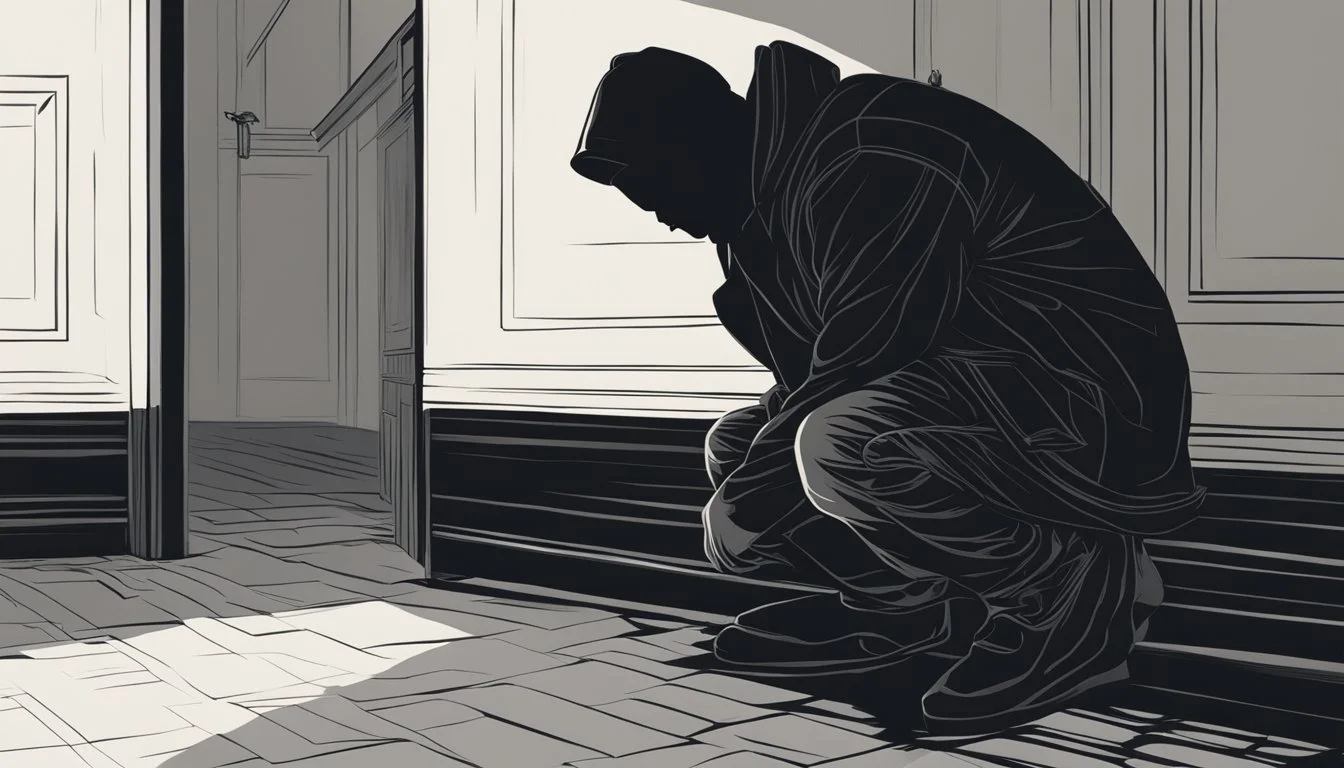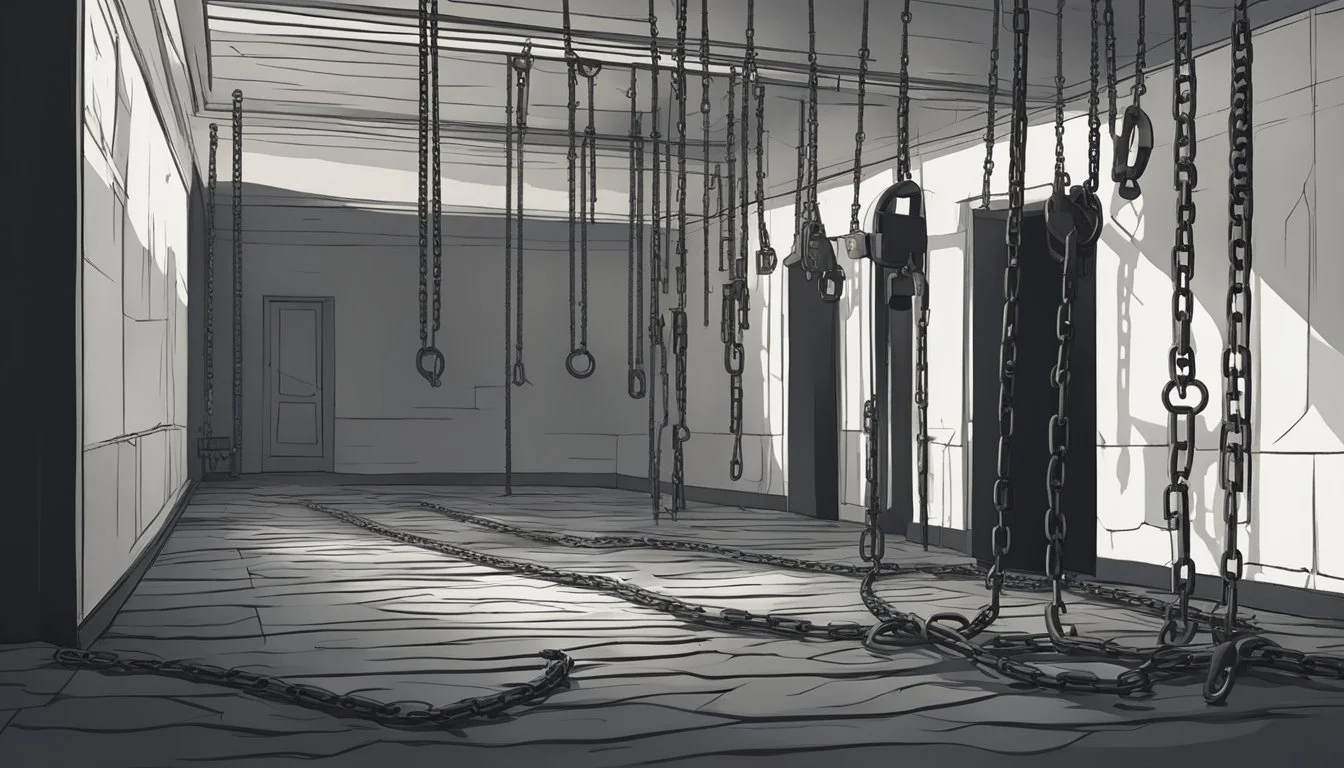9 Common Challenges Faced by Survivors of Torture
Overcoming Barriers to Recovery
Survivors of torture often face numerous and complex challenges that impact their physical, emotional, and psychological well-being. These challenges can stem from the immediate trauma experienced, as well as long-term consequences that affect daily life and interactions with others. Understanding these challenges is crucial for providing effective support and rehabilitation.
Recognizing the varied and profound effects of torture is essential for fostering empathy and offering appropriate care to those affected. The process of healing and recovery involves addressing not just the visible scars, but also the hidden emotional and psychological wounds. This article explores nine common challenges faced by survivors of torture, highlighting the importance of comprehensive support systems in their journey towards recovery.
1) PTSD
Survivors of torture often experience Post-Traumatic Stress Disorder (PTSD). This condition can manifest through flashbacks, nightmares, and severe anxiety. These symptoms disrupt daily life and make it difficult for individuals to feel safe.
PTSD can cause avoidance behaviors. Survivors might isolate themselves, avoiding places or situations that remind them of their trauma. This isolation can lead to further emotional distress and social withdrawal.
The trauma from torture often leads to hyperarousal. Individuals may be easily startled, have difficulty sleeping, and exhibit heightened irritability. These symptoms can interfere with both personal and professional relationships.
Comprehensive assessment by mental health professionals is crucial. Understanding the psychological effects of torture helps in developing effective treatment plans.
Treatment approaches include trauma-focused therapies. Challenges in therapy can arise due to the complex interplay between PTSD and other conditions such as chronic pain. An integrated treatment plan is often necessary to address these overlapping issues.
2) Anxiety Disorders
Survivors of torture commonly experience significant anxiety disorders. This condition often manifests as heightened physiological arousal and persistent fear.
Anxiety disorders in these individuals are frequently accompanied by other mental health issues. For instance, they may also suffer from post-traumatic stress disorder (PTSD) or depression.
The symptoms of anxiety can include palpitations, shortness of breath, and a constant state of dread. These responses can be triggered by reminders of the traumatic experience.
Treatment typically involves trauma-informed cognitive-behavioral therapies. These therapies are designed to help individuals manage their anxiety and process their traumatic memories.
Medications, such as selective serotonin reuptake inhibitors (SSRIs), are also often prescribed to help regulate mood and anxiety levels.
Healthcare providers play a crucial role in addressing the complex needs of these patients. A comprehensive approach, including coordination with social and legal services, is essential for effective care.
In many cases, survivors face additional challenges such as ongoing conflict or displacement. These issues can exacerbate their anxiety disorders and complicate their recovery process.
Family separation and socioeconomic concerns are other factors that can contribute to their anxiety. These are often linked to the traumatic events they have endured and continue to influence their mental health.
Providers need to be aware of the multifaceted nature of anxiety disorders in torture survivors. This understanding is critical for delivering effective and compassionate care.
3) Depression
Depression is a prevalent issue among survivors of torture. Many experience it as a result of the physical and psychological torment they have endured. It is common for depression to manifest long after the torture has ended, affecting their ability to function daily.
Symptoms of depression in torture survivors can include persistent sadness, lack of interest in activities, and difficulty concentrating. In severe cases, it can lead to suicidal thoughts or actions. Such symptoms significantly hinder the quality of life and recovery for survivors.
For example, depression was recorded as high as 94.7% among 131 African torture survivors, highlighting the severe impact torture can have on mental health. The combination of trauma and ongoing stress, such as immigration challenges, exacerbates these symptoms.
Mental health support is crucial for addressing depression in torture survivors. Comprehensive treatments combining medication, therapy, and social support can help mitigate the effects. Creating such supportive environments aids in their reintegration into society and improves overall well-being.
4) Trust Issues
Survivors of torture often develop significant trust issues due to their traumatic experiences. They may find it challenging to believe in the good intentions of others, even those in supportive roles. These trust issues are deeply rooted in the betrayal and abuses they endured.
The feeling of betrayal is common, as many survivors were harmed by individuals or authorities they once trusted. This breach can make it arduous to forge new relationships. Survivors might isolate themselves to avoid potential harm.
These trust issues extend to various aspects of life, including relationships with healthcare providers. Survivors might feel unsafe or misunderstood in medical settings, which can re-traumatize them. Building trust with healthcare professionals is crucial for effective treatment.
In their communities, survivors may struggle with reintegration and feel disconnected from both new and familiar environments. The fear of not being believed or accepted can hinder their social interactions and support systems.
Trust also impacts their day-to-day interactions, including work and social settings. Persistent mistrust can lead to difficulties in maintaining employment or accessing community resources. Overcoming these issues requires consistent, empathetic, and trauma-informed support.
Addressing trust issues is a vital part of the rehabilitation process. Creating a safe and predictable environment helps in gradually rebuilding trust. Therapeutic interventions focused on enhancing trust can significantly benefit the survivor's overall recovery and reintegration into society.
5) Physical Health Problems
Torture survivors often experience a range of physical health problems that can persist long after the traumatic events. Musculoskeletal pain is common, resulting from beatings or prolonged stress positions.
Neurological issues may also arise, including chronic headaches and neuropathic pain. This pain can be difficult to manage and requires specialized attention. Managing chronic pain in torture survivors is essential for improving their quality of life.
Skin conditions, such as scars and infections, are prevalent due to methods of torture involving cuts or burns. These dermatological problems can lead to long-term complications if not properly treated. Additionally, gastrointestinal issues are reported, often linked to stress and inadequate nutrition during captivity.
Respiratory problems can occur, particularly if the survivor was exposed to suffocation methods. This includes chronic coughs and difficulty breathing, which may need ongoing medical care. Cardiac issues, such as hypertension, can be aggravated by the physical and psychological stress endured.
Torture can also lead to long-term disability, limiting mobility and daily functioning. Effective and comprehensive medical care is crucial in addressing the multitude of health challenges faced by survivors. This includes coordinated care that covers the physical, psychological, and social aspects of their health.
6) Social Isolation
Survivors of torture often experience social isolation as a direct result of their traumatic experiences. Many find it difficult to trust others, leading to withdrawal from social interactions and community activities.
Family members of torture survivors may also experience isolation. They may feel unable to talk about their experiences or find that others cannot relate to their unique struggles.
Young individuals in these families may view attempts to reach out as a betrayal of their parents or internalize their parents' fears. This can deepen their sense of isolation and hamper their ability to form connections outside the family.
Social attitudes towards refugees and legal restrictions on work and integration exacerbate this isolation. These barriers limit opportunities for interaction and support from the broader community, making recovery more challenging for survivors.
Community development agencies play a critical role in addressing social isolation. By fostering community empowerment, these organizations can help survivors rebuild trust and establish supportive networks.
Medical and psychological care settings often find it challenging to manage the complexities of social isolation in torture survivors. Limited resources and high case loads can leave both staff and patients struggling to address this pervasive issue.
As highlighted by researchers, the recovery process from torture is extremely complex and can be impeded by social isolation, emphasizing the need for comprehensive support systems.
7) Memory Loss
Memory loss is a significant challenge for survivors of torture. The trauma endured can lead to cognitive impairments, affecting the ability to retain and recall information. This issue is often a result of both physical brain damage and psychological distress.
Survivors may struggle with fragmented or distorted memories. The inability to piece together a coherent narrative can complicate personal and legal matters. Torture can impair concentration and disrupt normal cognitive functions.
Certain environments or stimuli may trigger distressing recollections, further complicating the survivor's ability to process past events. Medical settings can induce anxiety or panic, reinforcing feelings of helplessness or powerlessness.
In some cases, survivors experience difficulty in creating new memories post-trauma. This can interfere with day-to-day activities and long-term recovery. It becomes essential for healthcare providers to understand these cognitive challenges to offer appropriate support and interventions.
For a detailed understanding of how memory is impacted, it's beneficial to examine research on distorted timelines and memory loss related to torture survivors.
8) Nightmares
Many survivors of torture frequently experience nightmares.
Nightmares are often tied to the traumatic events they endured. These distressing dreams can lead to significant sleep disturbances, impacting their overall well-being.
One speculation is that nightmares in torture survivors stem from autonomic nervous system hyperactivity. This condition can result in symptoms of hyperarousal, leading to agitation during both sleep and wakefulness.
Recurring nightmares can compound the psychological trauma survivors face. They may relive their experiences repeatedly, making it hard to differentiate between past and present.
The mental distress caused by these nightmares can be overwhelming. It may interfere with daily activities, reducing quality of life and impeding recovery.
Some studies indicate that psychological support and therapy can help manage these symptoms. For example, cognitive-behavioral therapies may offer coping strategies.
For more detailed information, visit Survivors of Torture | SpringerLink.
9) Hypervigilance
Hypervigilance is a state of heightened awareness often experienced by survivors of torture. It involves being constantly on guard and overly alert to potential threats. This condition can manifest due to trauma and can severely impact everyday life.
Individuals may consistently scan their environment for danger, creating a perpetual sense of unease. This heightened state often results from the need for self-protection after experiencing severe trauma.
Survivors of torture frequently exhibit hypervigilance, which can affect their mental and physical health. This constant state of alertness can lead to chronic stress and anxiety, further complicating their recovery process.
In urban settings, hypervigilance can be particularly troubling. Urban residents affected by trauma may find it challenging to differentiate safe situations from threatening ones. This can restrict their ability to engage in community life freely.
Hypervigilance is not limited to specific types of trauma. It is also prevalent among those who have endured narcissistic abuse. Understanding the origins and behaviors associated with hypervigilance can help in recognizing and addressing this condition.
Addressing hypervigilance involves therapeutic interventions that focus on trauma. Effective therapies aim to help individuals feel safe in their environment, reducing the constant state of alertness.
Psychological Impacts
Survivors of torture often experience severe psychological effects such as PTSD, anxiety, depression, and isolation. These mental health issues may deeply affect their daily lives and relationships.
PTSD and Anxiety
Post-traumatic stress disorder (PTSD) and anxiety are prevalent among torture survivors. These individuals frequently relive their traumatic experiences through flashbacks and nightmares. Situations that remind them of the trauma can trigger intense fear, panic attacks, and hypervigilance.
PTSD can severely disrupt their ability to function. Survivors may avoid certain places, people, or activities to prevent recalling traumatic memories. Anxiety manifests as chronic worry, agitation, and physical symptoms like increased heart rate and sweating.
Healthcare providers need to understand these impacts to provide effective care. Holistic approaches, including cognitive-behavioral therapy (CBT) and medication, can help manage PTSD and anxiety symptoms.
Depression and Isolation
Depression is another significant psychological consequence for survivors. This condition is marked by persistent feelings of sadness, hopelessness, and a lack of interest in daily activities. Such emotional states can lead to withdrawal from social interactions, further deepening their isolation.
Isolation often results from both internal and external factors. Internally, survivors may feel unworthy or struggle to trust others. Externally, they might face discrimination and socioeconomic challenges, compounding their sense of loneliness.
Effective treatment includes antidepressants and supportive psychotherapy. Building a supportive community and fostering social connections are crucial strategies to combat depression and isolation in these individuals.
Physical Health Issues
Physical health issues are prevalent among survivors of torture, manifesting primarily as chronic pain and sleep disorders. These challenges significantly impact their daily functioning and quality of life.
Chronic Pain
Chronic pain is a common and debilitating issue faced by survivors of torture. This type of pain often affects the musculoskeletal system, making it difficult for individuals to perform everyday activities. The persistent pain can result from direct physical injuries sustained during torture, such as fractures, soft tissue injuries, and nerve damage.
Musculoskeletal pain is frequently reported, affecting areas like the back, neck, and limbs. The lack of a clear understanding of the physiological mechanisms underlying post-torture pain complicates its management. Effective treatment often requires a multi-disciplinary approach, involving physical therapy, medication, and sometimes psychological support to address the pain's physical and emotional aspects.
Healthcare providers need to be aware of the high risk of inadequate pain assessment in this population. Standard pain management strategies might not be sufficient, necessitating tailored interventions that consider the unique experiences and traumas faced by torture survivors.
Sleep Disorders
Sleep disorders are another significant physical health issue for survivors of torture. These disorders can include insomnia, nightmares, and other disruptions that severely impact overall wellbeing. The psychological trauma associated with torture often exacerbates these sleep issues, as recurrent memories and stress can inhibit restful sleep.
Insomnia is a common complaint, with survivors reporting difficulty falling asleep or staying asleep. Nightmares are also frequent, reflecting the trauma's psychological impact. These sleep disturbances can contribute to daytime fatigue, cognitive impairments, and emotional instability.
Effective management of sleep disorders in torture survivors often entails a combination of therapeutic approaches. Cognitive-behavioral therapy for insomnia (CBT-I) can be beneficial, along with medications that promote sleep without causing dependency. Addressing underlying trauma through psychological support is also crucial in improving sleep quality. Detailed and compassionate assessments by healthcare providers are vital to developing effective treatment plans tailored to individual needs.
Social Integration Challenges
Survivors of torture face numerous obstacles when integrating into new communities. These challenges include significant cultural and language barriers as well as employment difficulties.
Cultural and Language Barriers
Integration into a new environment can be daunting. Low proficiency in the host language often hinders communication, making everyday interactions and accessing services challenging. Additionally, unfamiliarity with local customs and political systems may create further complications for resettling individuals.
Suspicion toward government services is common among torture survivors. This may stem from past experiences with authority figures in their home countries. They may also struggle with the psychological consequences of their trauma, which can impact their ability to engage with others.
There is a critical need for language and cultural orientation programs. These initiatives can help bridge the gap, easing the transition and fostering a sense of belonging.
Employment Difficulties
Securing employment is another significant hurdle. Many survivors lack recognition of their educational qualifications and work experience in the new country. They may also possess limited information on the local job market and employment practices.
Employment-related stress can exacerbate mental health issues. Access to vocational training and job placement services is vital for empowering torture survivors and supporting their economic independence. Programs should be tailored to the unique needs of torture survivors, considering their physical and psychological conditions.
Building partnerships with employers can also facilitate job opportunities, helping survivors to rebuild their lives and contribute to their new communities. Providing ongoing support and monitoring can ensure sustainable employment outcomes.











